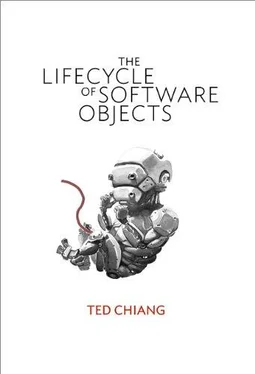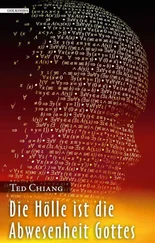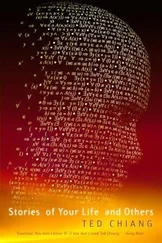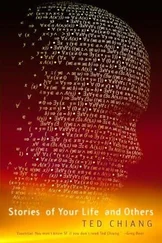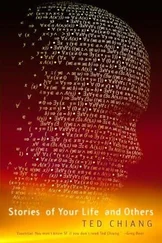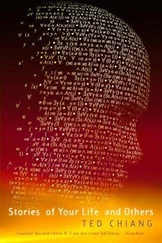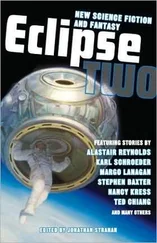“Then can show Polo how–Park! Park already?”
“No, we’re not there yet.”
“Sign says ‘Burgers and Parks.’” Marco points out a sign that they’re driving past.
“It says ‘Burgers and Shakes.’ Shakes, not parks. We’ve still got a little way to go.”
“Shakes,” Marco says, watching the sign recede in the distance. Another new activity for the digients has been reading lessons.
Marco or Polo never paid much attention to text before–there isn’t a lot of it in Data Earth aside from onscreen annotations, which aren’t visible to digients–but one owner successfully taught his digient to recognize commands written on flashcards, prompting a number of other owners to give it a try. Generally speaking, the Neuroblast digients recognize words reasonably well, but have trouble associating individual letters with sounds. It’s a variety of dyslexia that appears to be specific to the Neuroblast genome; according to other user groups, Origami digients learn letters readily, while Faberge digients remain frustratingly illiterate no matter what instruction method is used.
Marco and Polo take a reading class with Jax and a few others, and they seem to enjoy it well enough. None of the digients were raised on bedtime stories, so text doesn’t fascinate them the way it does human children, but their general curiosity–along with the praise of their owners–motivate them to explore the uses that text can be put to. Derek finds it exciting, and laments the fact that Blue Gamma didn’t stay in business long enough to see these things come to pass.
They arrive at the park; Ana sees them and walks over as Derek parks the car. Marco gives Ana a hug as soon as Derek lets him out of the car.
“Hi Ana.”
“Hi Marco,” replies Ana; she rubs the back of the robot’s head. “You’re still in the body? You had a whole week. Wasn’t that enough?”
“Wanted ride in car.”
“Did you want to play in the park for a bit?”
“No, we go now. Wendy not want us stay. Bye Ana.” By now Derek has gotten the charging platform for the robot out of the backseat. Marco steps on to the charging platform–they’ve trained the digients to return to it whenever they return to Data Earth–and the robot’s helmet goes dark.
Ana uses her handheld to get the first digient ready to enter the robot. “So you have to go, too?” she asks Derek.
“No, I don’t have to be anywhere.”
“So what did Marco mean?”
“Well…”
“Let me guess: Wendy thinks you spend too much time with digients, right?”
“Right,” says Derek. Wendy was also uncomfortable with the amount of time he’s been spending with Ana, but there’s no point in mentioning that. He assured Wendy that he doesn’t think of Ana that way, that they’re just friends who share an interest in digients.
The robot’s helmet lights up to display a jaguar-cub face; Derek recognizes him as Zaff, who’s owned by one of the beta testers. “Hi Ana hi Derek,” says Zaff, and immediately runs toward a nearby tree. Derek and Ana follow.
“So seeing them in the robot body didn’t win her over?” asks Ana.
Derek stops Zaff from picking up some dog turds. To Ana, he says, “Nope. She still doesn’t understand why I don’t suspend them whenever it’s convenient.”
“It’s hard to find someone who understands,” Ana says. “It was the same when I worked at the zoo; every guy I dated felt like he was coming in second. And now when I tell a guy that I’m paying for reading lessons for my digient, he looks at me like I’m crazy.”
“That’s been an issue for Wendy, too.”
They watch as Zaff sorts through the leaf litter, extracts a leaf decayed to near transparency, and holds it up to his face to look through it, a mask of vegetable lace. “Although I guess I shouldn’t really blame them,” says Ana. “It took me a while to understand the appeal myself.”
“Not me,” says Derek. “I thought digients were amazing right away.”
“That’s true,” agrees Ana. “You’re a rare one.”
Derek watches her with Zaff, admires her patience in guiding him. The last time he felt so much in common with a woman was when he met Wendy, who shared his excitement at bringing characters to life through animation. If he weren’t already married, he might ask Ana out, but there’s no point in speculating about that now. The most they can be is friends, and that’s good enough.
#
It’s a year later, and Ana is spending the evening at her apartment. On her computer she has a window open to Data Earth, where her avatar is at a playground, supervising a group play-date that Jax has with a handful of other digients. The number of digients continues to shrink–Tibo, for example, hasn’t been around in months–but Jax’s regular group has merged with another one recently, so he still has the opportunity to make new friends. A few of the digients are up in the climbing equipment, others play with toys on the ground, while a couple watch a virtual television.
In another window, Ana browses through the user-group discussion forums. The topic du jour is the latest action by the Information Freedom Front, an organization that lobbies for the end of privately owned data. Last week they publicized techniques for cracking many of Data Earth’s access-control mechanisms, and in recent days people have been seeing rare and expensive items from their game inventories being handed out like flyers on a downtown street corner. Ana hasn’t been to a game continent in Data Earth since the problem began.
In the playground, Jax and Marco have decided to play a new game. They both get down on all fours and begin crawling around. Jax waves to get her attention, and she walks her avatar over to him. “Ana,” he says, “you know ants talk each other?” They’ve been watching nature videos on the television.
“Yes, I’ve heard that,” she says. “You know we know what they saying?”
“You do?”
“We talk ant language. Like this: imp fimp deemul weetul.”
Marco replies, “Beedul jeedul lomp womp.”
“And what does that mean?”
“Not tell you. Only we know.”
“We and ants,” adds Marco.
And then Jax and Marco both laugh, mo mo mo, and Ana smiles. The digients run off to play something else, and she goes back to browsing the forums.
FROM: Helen Costas
Do you think we need to worry about our digients being copied?
FROM: Stuart Gust
Who would bother? If there were a big demand for digients, Blue Gamma wouldn’t have gone out of business. Remember what happened with the shelters? You literally couldn’t give a digient away. And it’s not as if they’ve gotten any more popular since then.
In the playground, Jax exclaims, “I win!” He’s been playing some vaguely defined game with Marco. He rocks side to side in triumph.
“Okay,” says Marco, “your turn.” He sorts through the toys around him until he finds a kazoo and then hands it to Jax.
Jax puts one end of the kazoo in his mouth. He gets on his knees and uses the kazoo to rhythmically poke at Marco’s midsection, around where his navel would be if he had one.
Ana asks, “Jax, what are you doing?”
Jax takes the kazoo from his mouth. “Make Marco blowjob.”
“What? Where did you see a blowjob?”
“On TV yesterday.”
She looks at the television; right now it’s showing a child’s cartoon. The television is supposed to draw its content from a children’s video repository; someone is probably inserting adult material using the IFF hack. She decides not to make a big deal of it to the digients. “Okay,” she says, and Jax and Marco resume their mime. She posts a note about the video tampering to the forums, and continues reading.
Читать дальше
